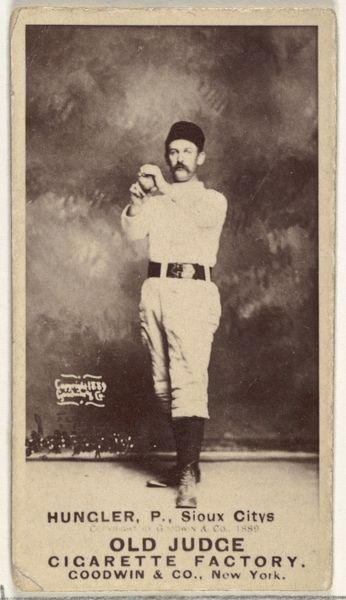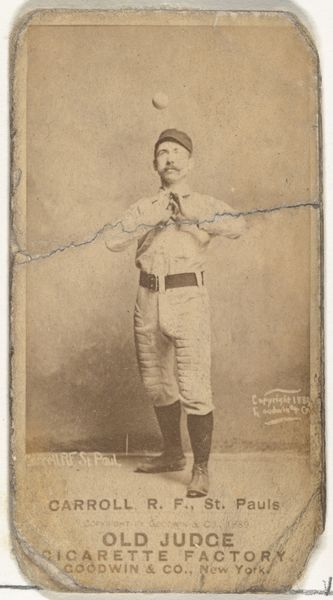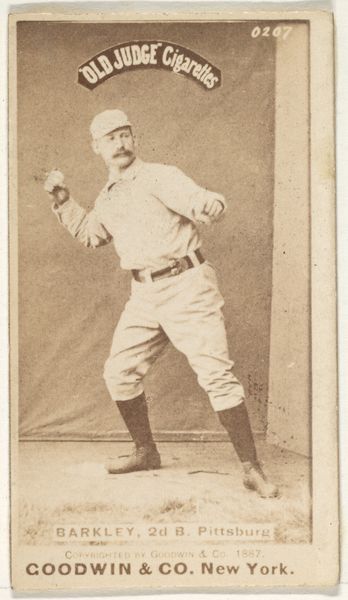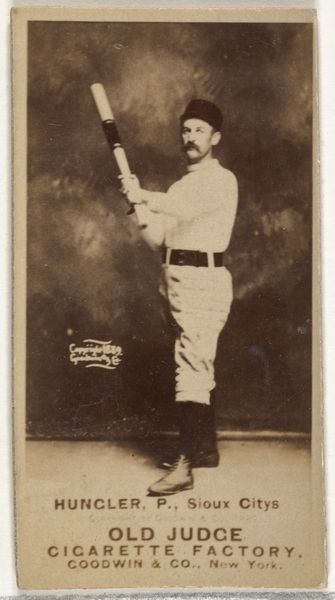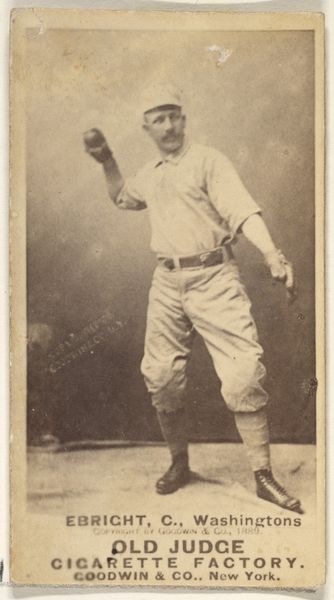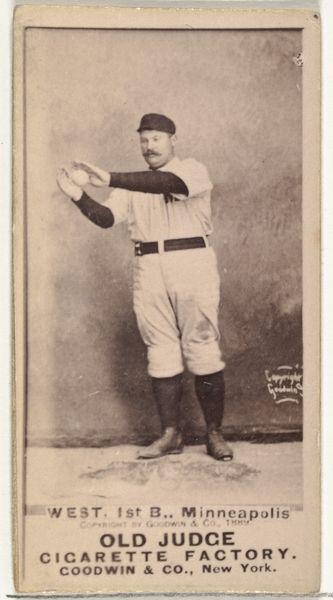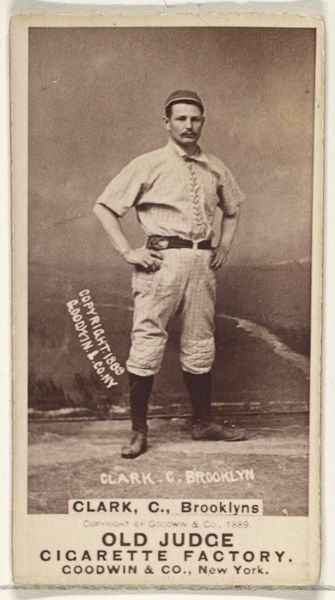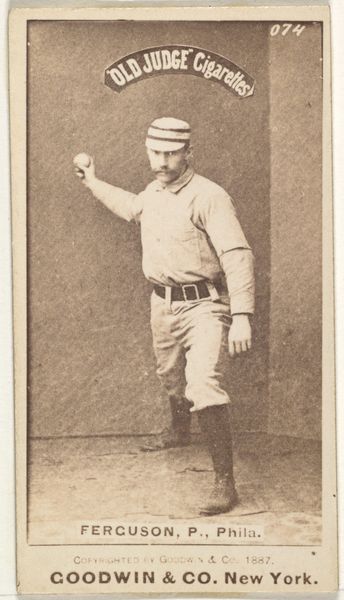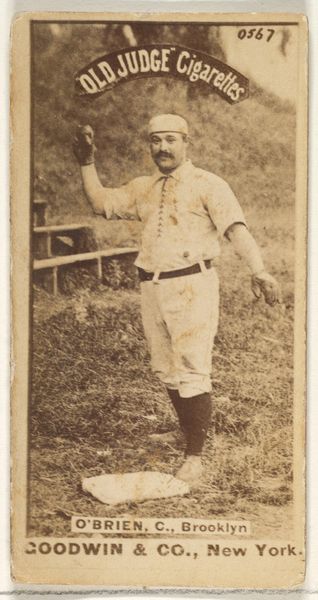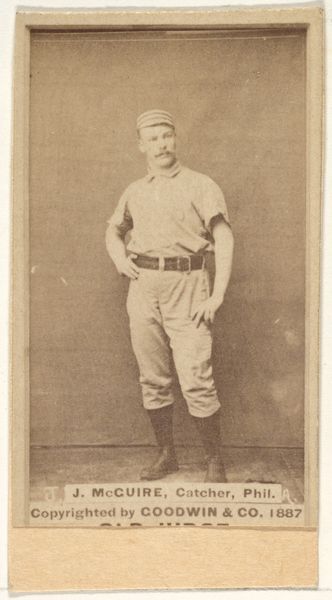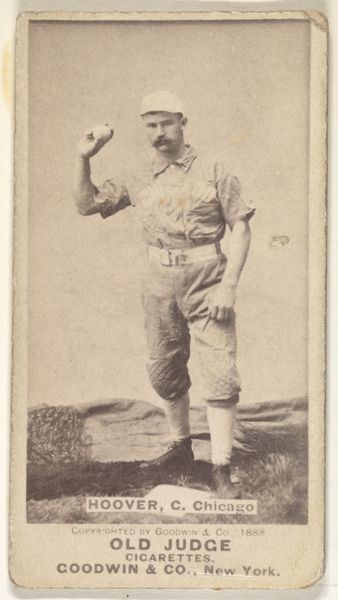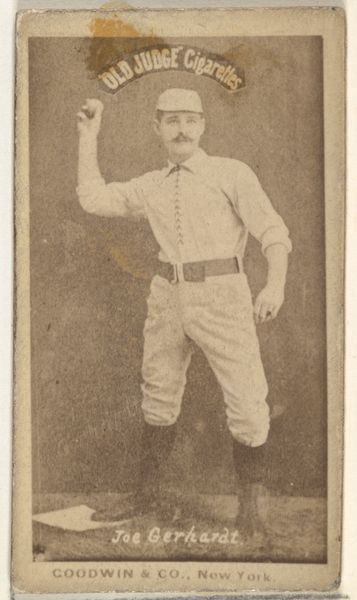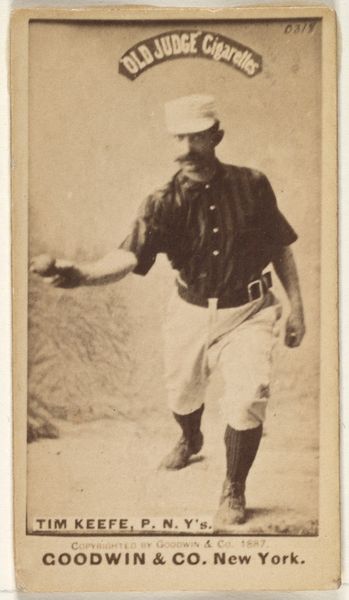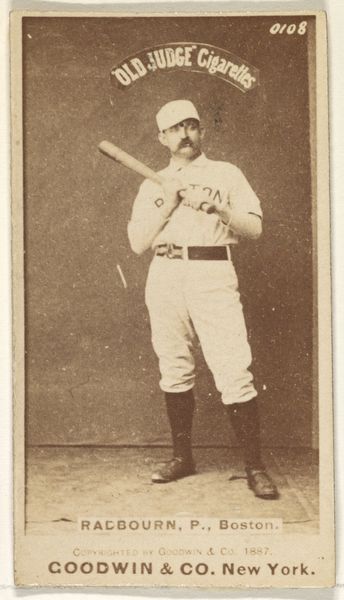
Al C. Hungler, Pitcher, Sioux City Corn Huskers, from the Old Judge series (N172) for Old Judge Cigarettes 1889
0:00
0:00
print, photography
#
portrait
# print
#
baseball
#
photography
#
19th century
#
men
#
athlete
Dimensions: sheet: 2 11/16 x 1 3/8 in. (6.9 x 3.5 cm)
Copyright: Public Domain
Curator: What strikes me immediately is the sense of nostalgia—a wistful longing for simpler times evoked by this sepia-toned portrait. Editor: Indeed. This is "Al C. Hungler, Pitcher, Sioux City Corn Huskers" from the Old Judge series. Dating back to 1889, it's a photographic print produced by Goodwin & Company as a cigarette card. Curator: The card format is interesting. These cards, distributed with cigarette packs, reflect a late 19th-century advertising strategy deeply embedded in the burgeoning culture of baseball. These weren't high art; they were ephemera meant to be collected and traded, shaping celebrity culture. Editor: Absolutely. Look at Hungler's pose. It's carefully staged, heroic even. The upraised hand gripping a baseball. Note his earnest gaze and carefully groomed mustache. Even his sturdy woolen jersey and the slightly scuffed boots contribute to a carefully constructed image of athletic prowess and respectability. Curator: And baseball as a symbol? Editor: Certainly, it carries significant weight. It represented not only physical prowess and national pride but also ideals of fair play and community, idealized values for a nation grappling with rapid industrialization and urbanization. The baseball diamond became a field where social anxieties and aspirations could be projected. Curator: The name "Old Judge" on the cigarette pack links smoking to these virtues as well. Through the use of this popular sport the brand elevated the reputation of its cigarette production. Editor: Exactly. Think of what he represents. He is more than an athlete but an advertisement representing those qualities which, as an American citizen, one should emulate. Curator: These objects, ostensibly simple trading cards, performed a crucial role in shaping social memory, in the ways that corporations have always co-opted our past and aspirations in order to sell products. Editor: Agreed. It allows us to understand baseball not merely as a game but as a crucial field where turn-of-the-century notions of identity, commerce, and national character were negotiated and visually cemented in the public imagination.
Comments
No comments
Be the first to comment and join the conversation on the ultimate creative platform.
